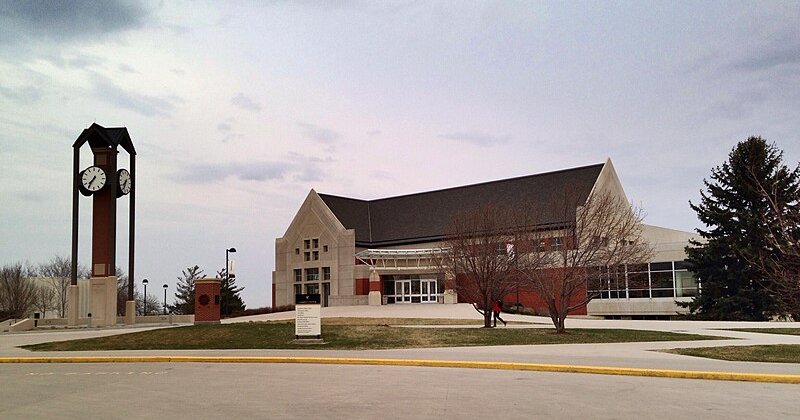

Donald Trump’s Iowa victory was substantial enough to sow despair among GOP non-Trumpists, and particularly Christians upset by his near-deification. Many secular media stories blamed evangelicals. MSNBC headlined its account, “Trump’s Iowa caucus win shows his power over evangelical voters.” Politico’s headline: “Trump consolidates evangelical vote in Iowa.” CNN announced “Trump’s hold on evangelicals” and The Washington Post proclaimed, “’Ordained by God’: Trump’s legal problems galvanize Iowa evangelicals.”
Yes and no. Those stories were all based on polling that asked voters to describe themselves. While millions of Americans have turned away from Christian belief, the number of white Americans who describe themselves as evangelical has grown during the Trump years. As political science professor Ryan Burge noted, many who are very conservative politically say “they are evangelical, even if they don’t believe in the divinity of Jesus Christ.” Many who never go to church describe themselves as “evangelical.” Half of Muslims who go a mosque more than once a week identify as “evangelical.”
Pollsters in Iowa did not follow up the “Are you an evangelical?” question with “What kind?” or even “Do you go to church?” For several summers I taught at Dordt University in northwest Iowa, and saw a rare sight in contemporary America: Shortly before 11 a.m. on Sundays, streets were full of people strolling to churches, including several thoroughly Reformed in theology. So, using a database on the Des Moines Register website, I checked to see how Republicans in the area surrounding Dordt voted in Monday’s caucuses.
In Sioux Center, home to Dordt, 563 residents in four precincts braved sub-zero temperatures. Trump garnered 167 votes (29.6%) and Ron DeSantis 194 (34.3%). Nikki Haley received 153 and Vivek Ramaswamy 49. In the two precincts of nearby Orange City, Trump got 120 out of 377 votes (31.8%) and DeSantis 156 (41.3%). Haley had 73 and Ramaswamy 28. A lonely contingent of ten held out for former Arkansas governor Asa Hutchinson.
Those statistics suggest a different story than today’s standard one about Christians leading the way in support of Trump. Which Christians? And are some Christian at all? At this point the press equation of “evangelical” and “Trump voter” is so frequent that polling questions have become tautologies, like saying “they voted one after another in succession” or “Trump supporter, who do you support?”
My request to pollsters and journalists is: Go the extra mile. Ask what “evangelicals” believe. Since one traditional mark of evangelicals is attendance at church, ask about that.The New York Times quoted Iowa’s Cydney Hatfield saying Trump is “the only savior I can see.” Some church services help us see further.
Sioux Center, Orange City and NW Iowa as well as Pella in central IA are quite heavily Dutch Reform and unusually culturally unified. It is not surprising to me, an Iowa resident, that they favored other-than-Trump as they tend toward more traditional, pre-MAGA Republican politics. In other areas of Iowa such as most of the southern tier counties where Pentecostals and non-denominational chapels or community churches predominate, the vote was much more pro-Trump. “Christians” is a very elastic term, covering everyone from Mainline Protestants to Catholics to Assyrians to Evangelicals of many stripes. “Evangelicals” is indeed an elastic term and now a proxy for “conservatives”, not just traditional fundamentalist Protestants. What is clear to me is that most conservative “Christians” went for Trump. They did so over issues of immigration, preservation of perceived Christian cultural hegemony, white supremacy , and the belief that Trump will defend them from perceived enemies. Where traditional Republican conservative values (fiscal conservatism, small government, strong military) still predominate among “Christians”, then Trump lost to DeSantis or Haley.
Kristen du Mez is from that part of Iowa, graduated from Dordt University, and is Dutch Reformed. She does not consider herself evangelical.
I know of plenty of people in KS and MO who go to church, believe in the divinity of Jesus, and are avid Trump supporters. I think it runs in the IFCA, Independent Baptist, SBC, and other independent, Bible Church, homeschooling, and IBLP circles. I would research the intersection of homeschooling, dispensationalism, Gothardism, and country music if you want to find large numbers of these people. Think Bob Jones, Pensacola, Liberty, SouthernBTS, FaithBBC, CalvaryU, MidwesternBTS, MaranathaBBC, BBC, etc. Also, there was considerable money poured into brainwashing the older generations through targeted mailings and talk radio. We were unable to convince them otherwise after receiving weekly manipulative “end-of-the-world-as-we-know-it” Trump mailings.